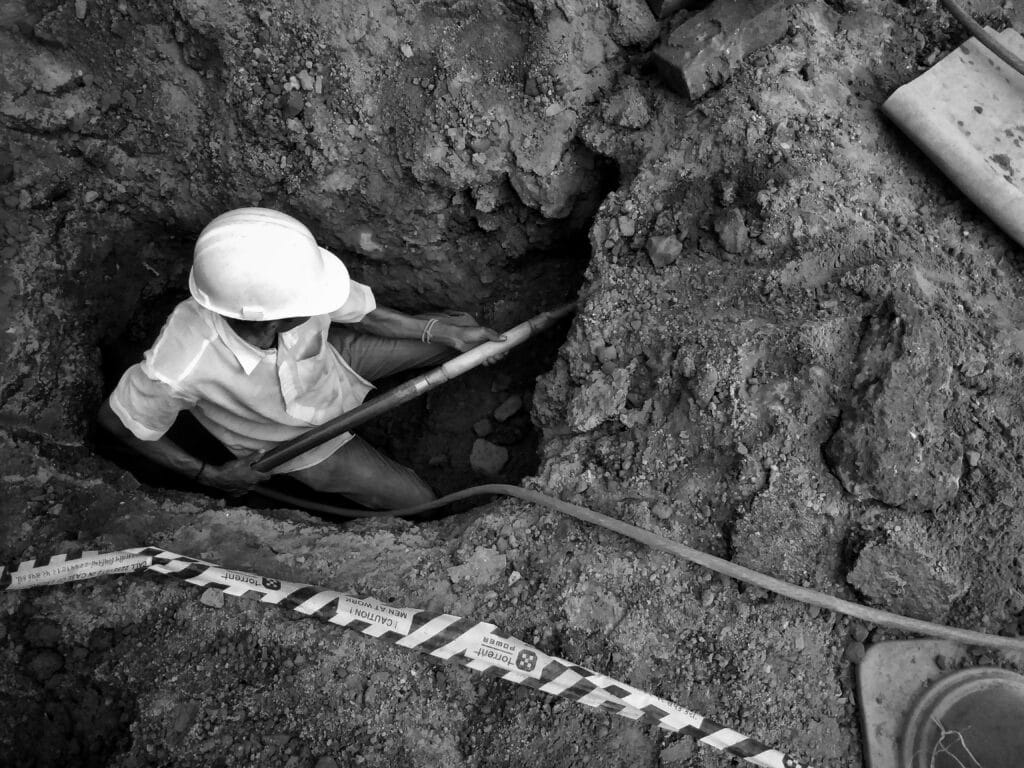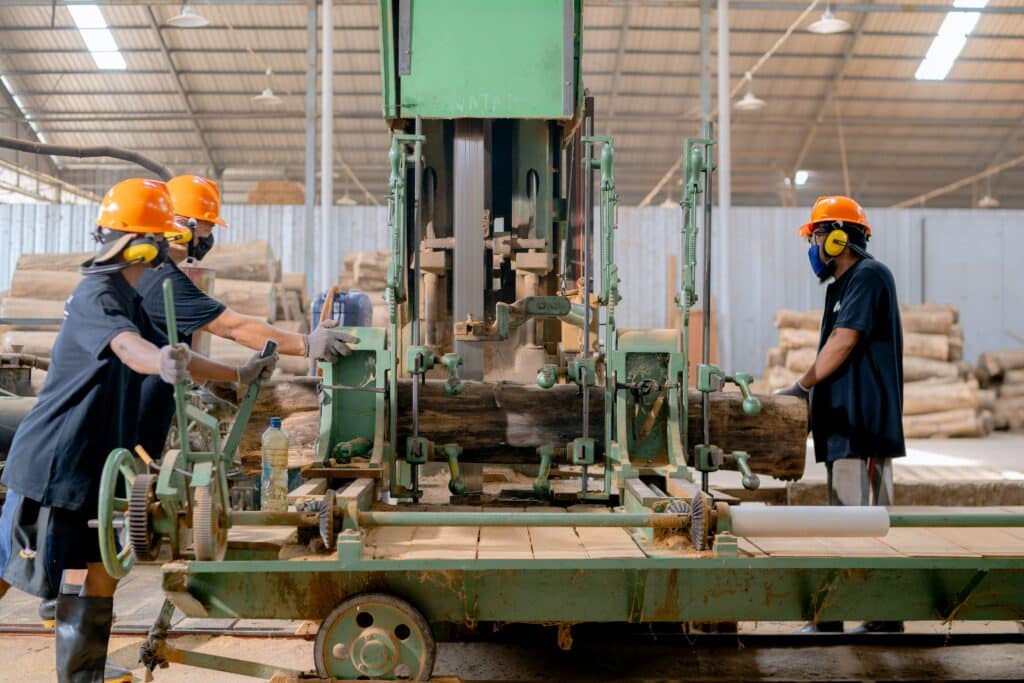
Is Basic Industries a Good Career Path?
These days almost everyone is encouraged to find a career in the lucrative tech industry. But what if you’re not really interested in it? Are there other careers that can give you the same opportunities, compensation, and satisfaction? Then, you might want to look into the basic industries. Basic industries are businesses that produce, provide, and deliver services and materials that are needed by other industries.
These industries are essential to the economy. One might even say that these are the foundational industries for any country, and is certainly a good career path for those interested in it. Within these industries are careers that provide not only stable career paths and compensations, but also a sense of purpose.
Table of Contents
Careers in Basic Industries
Agriculture
Farming is one of the oldest jobs in the world. It is the backbone of every civilization. The agriculture industry covers a diverse set of careers that varies from crop to dairy and meat products. You don’t have to have a green thumb to consider this a career path. Careers in this sector include fish harvesting, animal tending, machine operating, and more.
With the demand for raw materials growing by the year, agricultural and food scientists are in charge of ensuring quality and finding ways to improve the efficiency of production. They conduct research and experiments in different facilities to improve production and find ways of farming sustainably.
Agronomists and Crop Advisers can be certified by passing two comprehensive exams in addition to having two years of experience with a related bachelor’s degree or four years of experience with no degree.
Mining
Mining is the act of extracting useful minerals from the earth. Materials such as copper, gravel, and other ores are important in manufacturing electrical components and construction materials.
The act of mining requires exact science and the expertise of geologists, mining engineers, and geological engineers. Licensed engineers, also known as professional engineers (PEs) must finish an undergraduate engineering degree, earn work experience, and pass competency exams.
Geological engineers identify locations for mining specific minerals and plan efficient and environment-friendly processes to mine the ores. Mining engineers on the other hand supervise operations by designing and developing mines in the most efficient way possible.
Manufacturing
The manufacturing sector is composed of establishments, all of which are “engaged in the mechanical, physical, or chemical transformation of materials, substances, or components into new products.” Once raw materials from the agriculture and mining sectors have been secured, manufacturing companies turn them into items or food products that we can consume.
Production, from start to finish, is not an easy job when done on a huge scale. Project managers or specialists are needed to ensure the efficient coordination, staffing, and budgeting of each project or product.
Within the process of manufacturing itself, professionals such as engineers and technicians work to ensure that the products being made are of the right design and quality, and that any equipment used is working efficiently not just to make sure that production is on time, but to reduce any losses as well.
Construction
Construction requires multiple professionals and workers to create a house, building, or any structure that is safe for everyone to use. From planning to designing, to groundbreaking and construction, to its final inner workings and systems, specific professionals and experts play their own roles in the success of a project.
Civil engineers are in charge of designing, building, and supervising public infrastructure and systems. They oversee projects and consider costs, government regulations, and check if the location provides a good foundation through adequate soil testing.
Once the house or building is made, electricians work on installing, maintaining, and repairing (if necessary) electrical power and systems. Electricians must also follow safety regulations. They must ensure that their installed systems follow state codes to avoid accidents.
Plumbers, on the other hand, are in charge of installing or repairing piping fixtures and systems. Both professionals study the schematics, design efficient systems, and work with engineers so their designs can be incorporated during the construction before installation.
Utilities
The utilities sector is in charge of providing essential services such as water, gas, and electricity. If these services are not functioning properly, almost all other industries will come to a halt. Every industry in this sector requires specific professionals with steady career opportunities.
In water treatment plants, for example, operators are needed to manage the machine or system of machines to treat water that goes through the plant. In power plants, operators, distributors, and dispatchers are in charge of the systems that generate and distribute power. They determine if the power supply is sufficient and attend to the generators or turbines when necessary.
Certification programs are offered to operators to increase their skills and compensation opportunities. All wastewater treatment plant operators must have certified operators.
Why You Should Get a Job in Basic Industries
The word “basic” might sound discouraging for young people, especially the way it is used in slang, but do not be fooled as there are vast opportunities that the basic industries can offer. These industries are perennial; they will never not be needed by any working economy.
Compensation
The United States Bureau of Labor Statistics (BLS) for 2021 reports the significant compensations and demand in the farming industry. Agricultural scientists earn a median of $74,160 per year, and farmers and other agricultural managers have a median earning of $73,060.
Mining professionals have a significant median annual salary of $97,090. There are also around 13,000 mining sites in the US alone in 2019, producing metals, precious metals, and minerals. A degree and license in engineering are required for higher positions, while vocational education is required for miners and drillers, on top of experiences such as apprenticeships. Specific medical and vehicular licenses might also be required to maintain safety in the work area.
Depending on the specialty and industry, manufacturing engineers and technicians get significant compensation. Project managers earn an average of $94,500 a year as well.
In construction, the median annual wage for civil engineers was $88,050, with an employment projection of about 7% in the next ten years, which is the average for all occupations in the country, while electricians earn around $60,040 a year. Plumbers and pipefitters’ annual median wage is at $59,880 in 2021. Trade schools offer vocational courses, most of which take around 30 weeks, for those interested in becoming electricians and plumbers.
In the utilities sector, the median annual wage for wastewater treatment plant and system operators was placed at $47,880 a year, while power plant operators can earn around $94,790.
Opportunities and Outlook
The BLS’ projections for these careers are mostly upward. Agricultural scientists have an expected 8% increase in employment demand or outlook in the coming years, which is higher than the average.
Although the job outlook for mining professionals is lower than usual at 2%, mining and geological engineers can expect stable careers with the constant need for materials for manufacturing. On the other hand, the employment projection for project managers is at 7%, as companies seek to improve efficiency and productivity, so they do not need to fear any decreasing demand for their services.
Although there is a projected decline for water treatment plant operators, almost 11,000 job openings are projected for the industry each year. A stable outlook can also be expected in the construction industry, with a 7% expected employment growth both for civil engineers and electricians. Projection is however slightly lower for plumbers at 2% but 48,600 openings are to be expected each year on average.
Learning does not stop after acquiring a degree and license. Special tests and certifications will entitle you to higher compensation and benefits. Contrary to popular (and discriminatory) beliefs, technical jobs require high skills and efficiency, and these standard certifications will be proof of your capabilities to future employers.
From Path to Journey
The basic industries offer diverse opportunities for people from all walks of life. From agriculture to construction, these industries need minds and hands that are passionate about the service they provide to people. Career growth is certainly possible within these sectors, and since a lot of the professions are project-based, you also do not have to worry about burning out because of repeated tasks.
You will be making many, many choices in your life, big and small. In choosing careers, some people tend to follow “where the money is,” whatever is trending, or what their friends or family tell them to take. Take your time to decide what career path you want to build for yourself, find out the necessary steps to achieve your professional goals, and enjoy the journey.
Sarah is an accomplished educator, researcher and author in the field of testing and assessment. She has worked with various educational institutions and organisations to develop innovative evaluation methods and enhance student learning. Sarah has published numerous articles and books on assessment and learning. Her passion for promoting equity and fairness in the education system fuels her commitment to sharing insights and best practices with educators and policymakers around the world.








